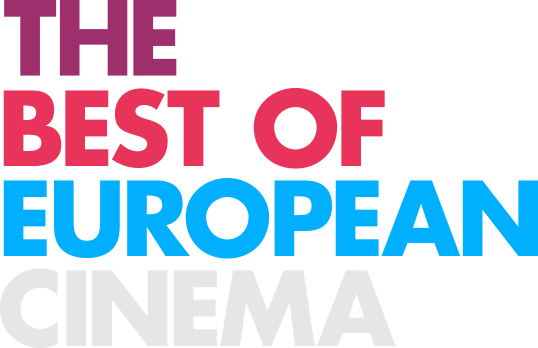Interview with Ukrainian filmmaker Kateryna Gornostai
-- This interview has been kindly provided by the team of Wiz-Art - Lviv International Short Film Festival. A big thank you to all the team! --
Ukrainian filmmaker Kateryna Gornostai was a Jury member of the Lviv International Short Film Festival Wiz-Art, which took place on July 24-27. Katya has been making documentary films for more than two years, and during the festival she held a lecture on the difference between the reality in feature films and documentaries. A few months ago Katya graduated the Marina Razbezhkina and Mikhail Ugarov School of Documentary Film and Theatre in Moscow. In December 2013, when Ukrainian civil protests known as Maidan started, she interrupted her studies and went back to Kyiv — to be there and to film the people of Maidan. As a result, two Katya’s shorts became a part of a documentary anthology ‘Euromaidan. The Rough Cut’. Katya told us about her experience of making the cinema of protest.
You had been studying in Moscow for several months when Maidan started here in Ukraine. How did it affect your studies?
It has been distressing lately. I have a lot of friends in Moscow, who understand and support us. That’s why it was a little bit unpleasant for me to see all those talks, somewhere on Facebook, like “Those Russians are not able to do anything right! We managed to kick away Yanukovych, and they can’t do the same with Putin”. The thing is that it’s impossible to do that in Russia. We can breathe freely in Ukraine, we can stand up and say: ‘Guys, we won’t take it anymore, sorry’. But Russians can’t. When they go to the protest, they already know that it will end up in some local police station for them. Moreover, they have to pay half of their salary for participating in a protest. To give you an idea, if for they get 40 thousands rubles of salary, they can go to the protests only twice a month.
Tell us about your studies at the Marina Razbezhkina and Mikhail Ugarov School of Documentary Film and Theatre, how did the process go?
It was like some kind of a cult (smiling), in a good way. It was really intensive. We worked during the days - because we had to pay for the school - and we attended classes in the evenings. You just get engaged in the process and live in it constantly. At some point I realized that other students and I, began thinking the same way about the same films. We didn’t talk much about technical things, but more about life in general. And somehow it worked; we all understood what was wrong and what was right in filming.
Razbezhkina’s school is like a workshop, a laboratory. She managed to gather people who think the same way, although they teach the students different things. A composer taught us solfeggio, and we learned to edit films. An anthropologist was telling us about social stereotypes, and we learned to understand human nature and the world.
You also graduated the Mohyla School of Journalism, and now you’re one of its teachers.
It’s the place where I saw the ‘auteur’ documentary films for the first time. My interest in documentary industry started in this school. When I came back there as a lecturer, I started to communicate with students, give them tasks. It’s a good start; at least some of them are now interested in documentary filmmaking. The school of journalism is not exactly the right place for that. Journalism can cause harm to documentaries.
For example, I once gave my students a task to approach strangers and start filming them. Students could not do it without an introduction, like: ‘Hello, can I ask you a question’. But when you do ‘Hello, can I ask you a question’ — it’s a completely different approach, the person will then give you what you ask for. Documentary — it’s when you find your protagonist and you start to ‘find the truth’ together.
I never start a conversation; I just start filming. Like on Maidan. I filmed how people talk to each other, how they act. It’s a common thing when a person starts asking you something after noticing your camera. You answer this question, and the conversation begins. It ends up with a monologue, like: ‘We have to stand, we are heroes’. And the same pretentious story comes out over and over again. It’s hard to make somebody speak simply in such a short time. People tend to give answers like from the height of their heroism. It’s completely understandable, but I prefer to observe people when they remain silent, because it’s when they are more honest.
What was the hardest part of a filming on Maidan? Did you have any specific goal?
The hardest thing was that there was no goal at all. Another difficulty was that in fact I was very afraid of filming strangers. I had to do it during my studies, and when I came back home, it was like a test: go and shoot. It was very scary and now I’m not sure if I did well with it.
Maidan was yet another school for me. Everyone there did what were able to do. I was able to film, so I tried to do that.
There is an interesting thing in the filming process. At some point you forget that you are by this side of camera. You just look into the camera window, and nothing else is going on except what you see there. And something really beautiful is going on there. And you forget that you’re afraid of talking to strangers, or that you’re not like the others, or that you care about what other people think of you. It’s so cool. That is what I felt on Maidan and what I’d like to feel on my shootings over and over.
What is the Maidan’s impact on Ukrainian documentary films?
Maidan gave rise to a lot of civic initiatives. That’s why documentary filming will be moving forward — because of uprising people, who can be its characters. Maidan has motivated people to start doing something, and filmmakers have a lot of work in filming those people.
The documentary genre itself is a very good starting point for those who want to make films. It’s a real movie about real people. Ukrainian cinematography nowadays has a huge problem — it’s not about life. It’s about some crazy author’s idea, which has nothing to do with reality. They are not fantasy films, because they are supposed to be true. However they are not realistic movies, because filmmakers are not experienced enough, because they have never shot documentaries and do not know anything about how the real life works.
So your advice is to start with a documentary?
It’s a very good option. In documentaries you can feel the real world. People act as they want to act. You look at them and understand: OK, this works that way. Later you can use it in a feature film.
I once worked on a project where we had to make a drama story out of an array of different people’s stories that they had filmed about their own life. And there was a boy who was making tea from a tea bag. So he wound the bag string round the cup handle in order not to let it sink when he’d pour water. And it would be a very natural scene if you used this episode in a feature film. You’d be able to tell a lot without a single word. Your movie should hold such small natural things, because all our life is made of them.
Do you consider your film characters as co-authors? Do you have a feeling that a documentary is more responsible than a feature film?
I think that all my films were a gift that the people I filmed made to me. In a documentary, a filmmaker’s concern is to find a character, and everything else depends on that. It’s amazing when you manage to find the right character and he or she gives you exactly what you want. There’s no arrangement, no parts to play. You just take your camera, and your character begins acting the way you need.
Yet documentary filmmaking can be very manipulative. Sometimes a filmmaker would go to any length to make the story like he or she wants it to be, even if this is going to falsify facts. It’s only the filmmaker who knows that the character’s tears are not because of sorrow, but actually because of cigarette smoke in their eyes. The audience will never know this. I would never do such a thing. When a character cries in my film, I’m showing that he’s doing it because he’s chopping an onion, and not because he’s sorry. It is just a very good moment, that’s why I’ve decided to film it. But I’m not lying — I’m showing the onion.
31 July 2014, by Cineuropa Shorts






